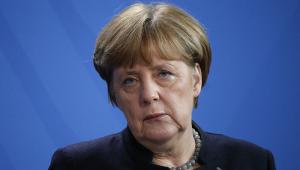Athens’ current bailout programme expires at the end of the month and without a new deal the country would run out of cash and seek a possible euro exit.
Oettinger said that Greece’s international creditors should prepare themselves for social unrest, a lack of medical supplies and energy in the country if no deal is struck by June 30. There is now just two weeks left for Greece to overcome its deadlock with creditors and reach a deal before it faces a €1.6bn repayment bill due to the International Monetary Fund.
“We should work out an emergency plan because Greece would fall into a state of emergency,” Oettinger said.
“I think that the commission needs to work out a plan that could avert a worsening of the situation in the event that Greece leave the eurozone, in the event of bankruptcy.”
Greece still needs to submit suggestions on pension and wage reforms to move the talks along, he added.
“The offer is still valid to hold Greece in the eurozone. But for that to happen Greece will have to move its positions on pensions and it general budget consolidation.”
Greek prime minister Alexis Tsipras failed to listen to pleas from European leaders to act fast and has instead blamed creditors for the stalemate in talks for economic reform, according to reports. Tsipras noted that his government would resist pension cuts to preserve the dignity of its citizens.
“It is not a matter of ideological stubbornness. It has to do with democracy,” Tsipras said.
A Greek government spokesman has been reported as saying Greece still wants to reach a deal with its creditors and said talks have not broken down. But he admitted that Athens has different priorities from the troika, which made it difficult to reach an agreement.
The ‘troika’ of creditors – the IMF, the European Union and the European Central Bank – have offered an economic reform package to Greece, including a series of austerity measures, reforms to VAT, pensions and wages, as a bargaining tool to unlock €7.2bn in new financial help.








